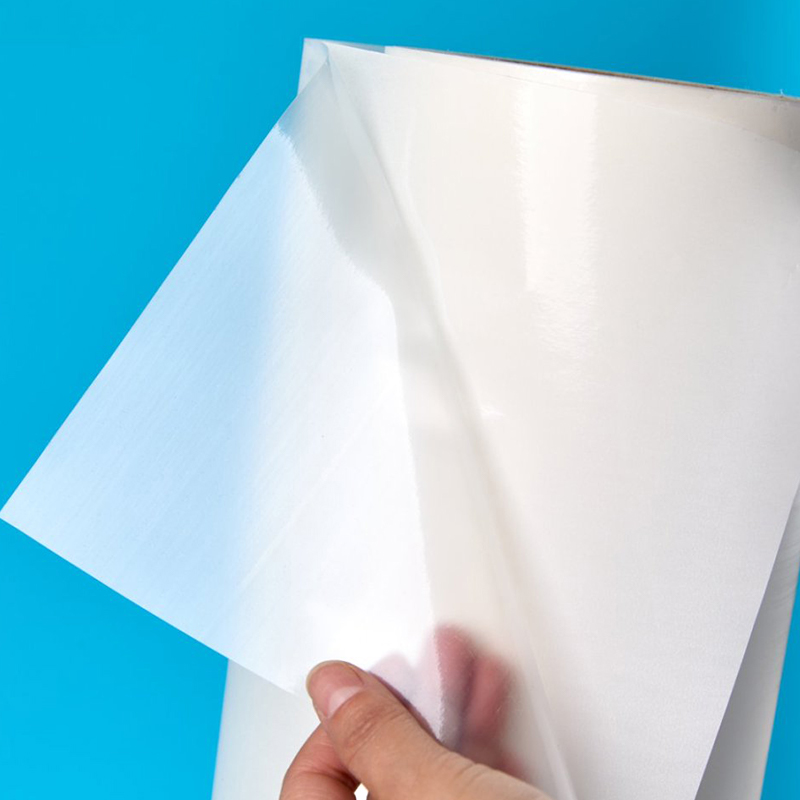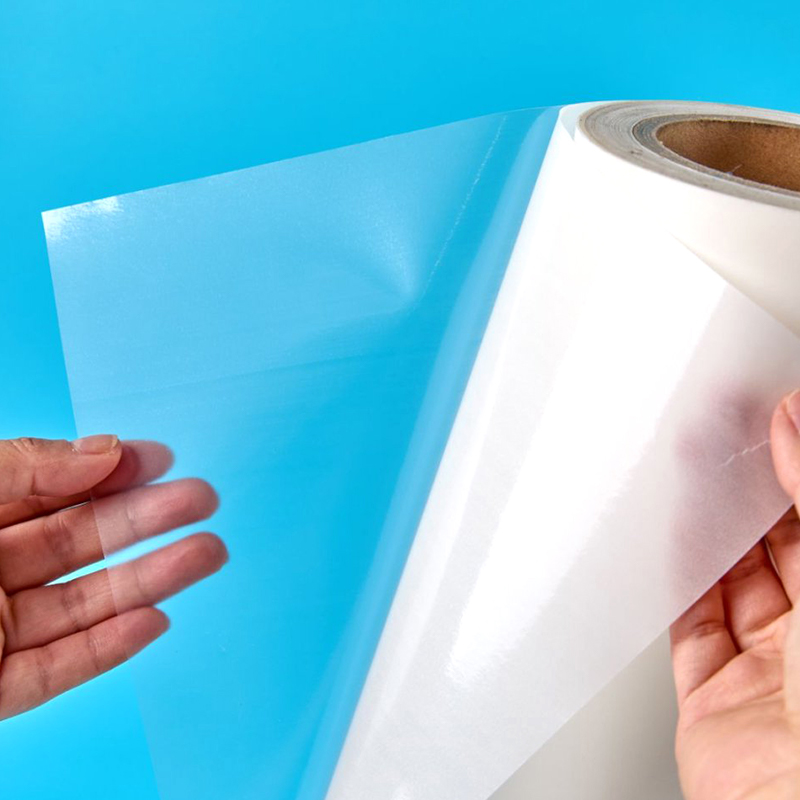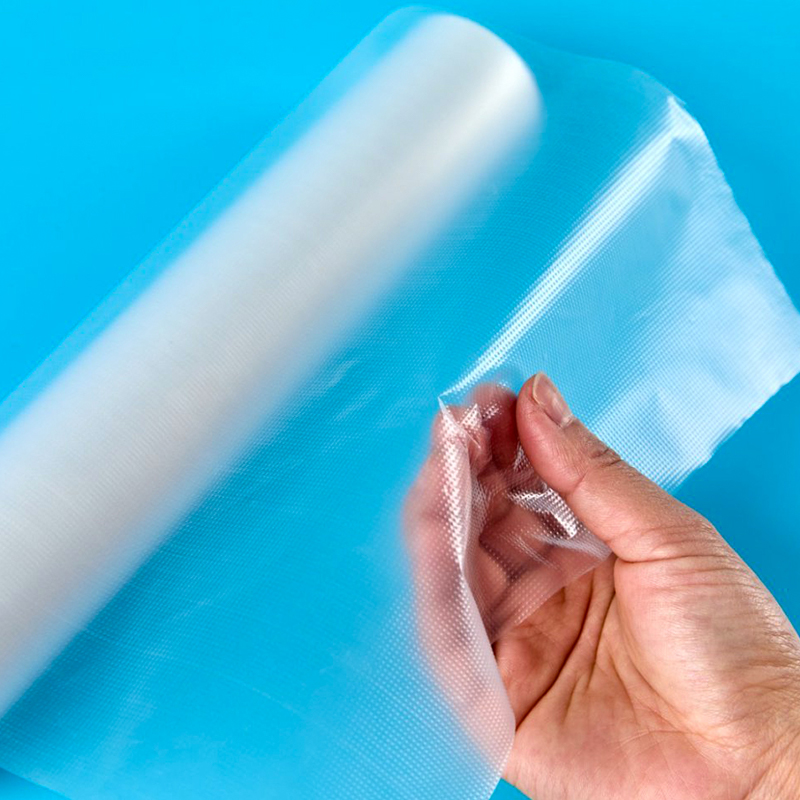What is cold water-soluble film?
Cold water-soluble film is an innovative, environmentally friendly material designed to dissolve completely in cold or room-temperature water. Unlike conventional plastics, which persist in the environment for hundreds of years, this film breaks down rapidly, leaving no harmful residues. Made primarily from polyvinyl alcohol (PVOH) or other biodegradable polymers, cold water-soluble film offers a sustainable alternative for industries seeking to reduce plastic waste.
The key characteristic of this material is its ability to dissolve at lower temperatures (typically below 20°C), making it highly practical for applications where hot water is not available or desirable. The film's solubility is influenced by factors such as thickness, chemical composition, and water agitation. Manufacturers can adjust these properties to optimize performance for specific uses, ensuring reliable dissolution while maintaining structural integrity before use.
Cold water-soluble films are increasingly replacing traditional plastics in sectors such as packaging, agriculture, healthcare, and textiles. Their biodegradability and non-toxic breakdown make them an ideal choice for companies aiming to meet stricter environmental regulations and consumer demand for sustainable products.
How does cold water-soluble film work?
The dissolution process of cold water-soluble film is driven by its unique polymer structure. PVOH, the primary component, contains hydroxyl groups that form hydrogen bonds with water molecules. When submerged, water penetrates the film's matrix, causing it to swell and gradually disintegrate into a non-toxic solution.
Several factors affect the dissolution rate:
- Water Temperature: Although designed for cold water, the film dissolves faster in warmer conditions.
- Agitation: Moving water (e.g., in a washing machine) accelerates breakdown.
- Film Thickness: Thinner films dissolve more quickly than thicker variants.
- Chemical Additives: Some formulations include surfactants or plasticizers to enhance solubility.
This mechanism makes cold water-soluble film particularly useful in applications requiring immediate dissolution without external heat. For example:
- Laundry Detergent Pods: The film encasing the detergent dissolves completely in cold wash cycles, eliminating plastic waste.
- Medical Packaging: Dissolvable pouches for single-use sanitizers or medications ensure safe, mess-free usage.
- Agricultural Films: Water-soluble seed coatings or pesticide bags dissolve upon irrigation, preventing plastic contamination in soil.
The precision engineering behind these films ensures they remain stable in humid conditions but dissolve predictably when submerged, making them a reliable and sustainable solution.
What are the main applications of cold water-soluble film?
The versatility of cold water-soluble film has led to widespread adoption across multiple industries:
1. Packaging Industry
- Single-Dose Detergent Pods: PVOH water-soluble film is widely used in laundry and dishwasher pods, reducing plastic waste.
- Agrochemical Packaging: Pre-measured pesticide or fertilizer packets dissolve in water, minimizing chemical exposure.
- Personal Care Products: Dissolvable sachets for shampoos, bath oils, and other liquids enhance convenience and sustainability.
2. Healthcare & Hygiene
- Hospital Laundry Bags: Cold water-soluble laundry bags contain contaminated linens and dissolve during washing, reducing infection risks.
- Dissolvable Wound Dressings: Biodegradable films are used in medical applications where easy removal is essential.
3. Agriculture & Horticulture
- Seed & Fertilizer Coatings: Films dissolve upon watering, delivering nutrients without plastic residues.
- Pesticide Packaging: Pre-portioned chemical packs prevent overuse and eliminate plastic waste.
4. Textile & Embroidery
- Stabilizer Films: Used in embroidery, the film dissolves after stitching, leaving no residue on fabrics.
5. Industrial Applications
- Water-Soluble Protective Films: Temporary coatings for machinery parts that dissolve during cleaning.
The growing demand for eco-friendly alternatives ensures that cold water-soluble film will continue expanding into new applications.
How Does Cold Water-Soluble Film Compare to Hot Water-Soluble Film?
Water-soluble films have gained significant attention in various industries due to their eco-friendly properties and functional versatility. Among these, cold water-soluble film and hot water-soluble film are two prominent variants, each serving distinct applications based on their dissolution characteristics. While both types are designed to dissolve in water, their performance varies depending on temperature sensitivity, material composition, and intended use.
Composition and Material Properties
Both cold water PVA film and hot water-soluble films are primarily made from polyvinyl alcohol (PVOH), a synthetic polymer known for its water solubility and biodegradability. However, the formulation of these films differs to accommodate their respective dissolution temperatures.
- Cold Water-Soluble Film: Designed to dissolve at lower temperatures (typically below 20°C or 68°F), this film is engineered with modified PVOH water soluble film formulations that enhance solubility in cold water. It is ideal for applications where hot water is impractical or unavailable.
- Hot Water-Soluble Film: Requires higher temperatures (usually above 40°C or 104°F) to dissolve, making it suitable for industrial processes, hot water laundry systems, and other high-temperature applications.
The key distinction lies in the polymer's molecular structure and the degree of hydrolysis. Cold water soluble film often incorporates plasticizers or additives that lower the dissolution threshold, whereas hot water-soluble films maintain stability until exposed to elevated temperatures.
Applications of Cold Water-Soluble Film
The ability of cold water dissolvable film to dissolve at ambient temperatures makes it highly valuable in several industries:
- Detergent Packaging: Water soluble film for detergent pods ensures that the film dissolves quickly in cold wash cycles, releasing the detergent without leaving residues.
- Medical and Healthcare: Used in dissolvable laundry bags for hospitals, cold water soluble laundry bags help contain contaminated textiles while dissolving during washing.
- Agriculture: Cold soluble film for agriculture serves as a dissolvable mulch or pesticide carrier, eliminating the need for manual removal.
- Embroidery and Textiles: Cold water film for embroidery stabilizes fabric during stitching and dissolves afterward without requiring hot water treatment.
- Single-Use Packaging: Cold water soluble wrap is used for pre-measured food ingredients, reducing plastic waste in commercial kitchens.
Applications of Hot Water-Soluble Film
Hot water-soluble films are preferred in scenarios requiring controlled dissolution at higher temperatures:
- Industrial Chemical Packaging: Used for encapsulating dyes, adhesives, and other chemicals that are activated in hot water.
- Laundry and Dishwashing Products: Some detergent pods utilize hot water-soluble films to ensure delayed release in high-temperature wash cycles.
- Manufacturing Processes: In textile and paper industries, hot water-soluble films serve as temporary binders that dissolve during processing.
Environmental Impact and Sustainability
Both eco-friendly soluble film types contribute to reducing plastic pollution, but their biodegradability depends on the specific formulation. Biodegradable cold water film and hot water-soluble films break down into non-toxic components, minimizing environmental harm. However, cold water soluble packaging film may offer broader usability in regions where hot water consumption is limited, further enhancing sustainability.
Comparison Table: Cold vs. Hot Water-Soluble Films
| Property | Cold Water-Soluble Film | Hot Water-Soluble Film |
|---|---|---|
| Dissolution Temperature | Below 20°C (68°F) | Above 40°C (104°F) |
| Primary Material | Modified PVOH | Standard PVOH |
| Key Applications | Detergent pods, medical laundry bags, agriculture | Industrial chemicals, high-temperature laundry |
| Environmental Benefit | Reduces need for hot water, broader usability | Suitable for high-heat processes |
The choice between cold water-soluble film and hot water-soluble film depends largely on the intended application and environmental conditions. While cold water PVA film excels in low-temperature dissolution for household and medical uses, hot water-soluble films remain essential for industrial applications requiring heat activation. Both variants represent significant advancements in water soluble packaging film technology, promoting sustainability and efficiency across multiple industries. As demand for soluble plastic film grows, further innovations in material science will likely expand their applications and environmental benefits.
What Are the Benefits and Uses of Cold Water-Soluble Film?
Cold water-soluble film is a specialized material designed to dissolve rapidly in cold water, offering a sustainable and efficient solution for various industries. Made primarily from polyvinyl alcohol (PVOH) or similar biodegradable polymers, this film is engineered to disintegrate without leaving harmful residues, making it an eco-friendly alternative to traditional plastics. Its applications span packaging, agriculture, textiles, and household products, where convenience and environmental responsibility are paramount.
Properties and Advantages of Cold Water-Soluble Film
Cold water-soluble film possesses unique characteristics that distinguish it from conventional plastic films. Its solubility in cold water eliminates the need for heat or chemical treatments, reducing energy consumption and simplifying disposal. The film is typically made from PVOH (polyvinyl alcohol), a biodegradable polymer that breaks down into non-toxic components, ensuring minimal environmental impact.
One of the primary advantages of cold water dissolvable film is its versatility. It can be tailored to dissolve at specific temperatures, making it suitable for different applications. For instance, cold water PVA film used in detergent packaging dissolves quickly in laundry water, while films designed for agricultural applications may have a delayed dissolution rate to withstand light moisture exposure.
Additionally, this material is odorless, non-toxic, and safe for direct contact with food and pharmaceuticals. Its high tensile strength ensures durability during handling, yet it disintegrates completely upon water exposure, leaving no microplastics behind. These properties make cold water-soluble film an ideal choice for industries seeking sustainable yet functional materials.
Cold water-soluble film represents a significant advancement in sustainable materials, offering practical solutions across multiple industries. Its ability to dissolve in cold water, combined with biodegradability and non-toxicity, makes it an environmentally responsible alternative to traditional plastics. From water-soluble packaging film to agricultural and textile applications, this material supports efficiency while reducing waste. As industries continue to prioritize eco-friendly innovations, cold water dissolvable film is poised to play a crucial role in the transition toward greener practices.
| Application | Key Benefits |
|---|---|
| Detergent Packaging | Prevents overuse, reduces plastic waste, dissolves completely in wash cycles. |
| Agricultural Mulch | Biodegradable, eliminates removal labor, enhances soil health. |
| Embroidery Stabilizers | Dissolves without residue, protects delicate fabrics during stitching. |
| Medical & Hygiene Products | Ensures sterile handling, reduces contamination risks. |
| Industrial Packaging | Simplifies disposal, minimizes plastic pollution in logistics. |
By integrating cold water-soluble film into their operations, businesses can achieve both functional and environmental objectives, paving the way for a more sustainable future.
Why should you consider cold water-soluble film?
The growing global emphasis on sustainability and plastic waste reduction has made cold water-soluble film an increasingly attractive solution across multiple industries. As governments implement stricter regulations on single-use plastics and consumers demand more eco-friendly products, businesses must adapt to remain competitive while meeting environmental responsibilities. Cold water-soluble film presents a compelling alternative that addresses these challenges while offering practical advantages in manufacturing, packaging, and product delivery.
Meeting Regulatory and Consumer Demands
With bans on single-use plastics expanding worldwide—from the EU's Single-Use Plastics Directive to regional restrictions in North America and Asia—companies face mounting pressure to adopt sustainable materials. Cold water-soluble film provides a compliant solution that eliminates plastic waste without compromising functionality. Unlike traditional plastics that persist in landfills and oceans, this film dissolves completely in water, breaking down into biodegradable components that do not contribute to microplastic pollution.
Consumer preferences have also shifted dramatically toward sustainable products. Studies show that a majority of shoppers are willing to pay more for environmentally responsible packaging. By incorporating cold water-soluble film into product designs, brands can enhance their market appeal while demonstrating a genuine commitment to sustainability.
Operational and Cost Benefits
Beyond environmental advantages, cold water-soluble film offers several practical benefits for businesses:
1. Reduced Energy Consumption
Unlike hot water-soluble films that require heated water for dissolution, cold water-soluble variants work effectively at ambient temperatures. This eliminates the energy costs associated with heating water in industrial processes, laundry applications, or agricultural uses.
2. Improved Safety and Convenience
In industries handling hazardous materials—such as detergents, pesticides, or medical supplies—cold water-soluble packaging reduces direct exposure risks. Pre-measured dissolvable packets ensure precise dosing while preventing spillage or contamination.
3. Supply Chain Efficiency
The lightweight nature of water-soluble films reduces shipping costs compared to rigid plastic containers. Additionally, their compact design allows for higher storage density, optimizing warehouse space.
4. Waste Reduction and Cleaner Production
Manufacturers using cold water-soluble films can minimize post-production waste since leftover film scraps dissolve during cleaning processes. This creates a cleaner, more sustainable production cycle.
Industry-Specific Advantages
Packaging Sector
- Replaces single-use plastic wrappers for food, cosmetics, and household products
- Enables innovative dissolvable packaging designs that enhance user experience
Detergent and Cleaning Products
- Ideal for laundry pods and dishwasher tablets in cold-water washing trends
- Eliminates plastic pollution from detergent packaging
Agriculture and Horticulture
- Dissolvable seed coatings and fertilizer packets improve precision farming
- Reduces plastic mulch waste in crop production
Healthcare and Hygiene
- Used in dissolvable laundry bags for hospitals, preventing pathogen spread
- Potential for biodegradable wound dressings and pill coatings
Textile Industry
- Serves as temporary stabilizers in embroidery without residue
- Could replace plastic-based backing materials in fabric production
Future-Proofing Your Business
As sustainability regulations tighten and circular economy principles become standard, early adopters of cold water-soluble film will gain a competitive edge. Companies investing in this technology now position themselves as industry leaders in environmental responsibility while future-proofing their operations against upcoming plastic bans.
Research and development in polymer science continue to expand the capabilities of cold water-soluble films, making them more durable, customizable, and cost-effective. Innovations in multi-layer films and controlled dissolution rates will further broaden industrial applications.
A Strategic Investment for Sustainable Growth
Transitioning to cold water-soluble film is not merely an environmental decision—it's a strategic business move that aligns with global sustainability trends while delivering operational efficiencies. Whether you're in packaging, manufacturing, agriculture, or healthcare, incorporating this technology can:
- Help comply with current and future environmental regulations
- Meet growing consumer demand for sustainable products
- Reduce operational costs through energy savings and waste reduction
- Enhance brand reputation as an eco-conscious leader

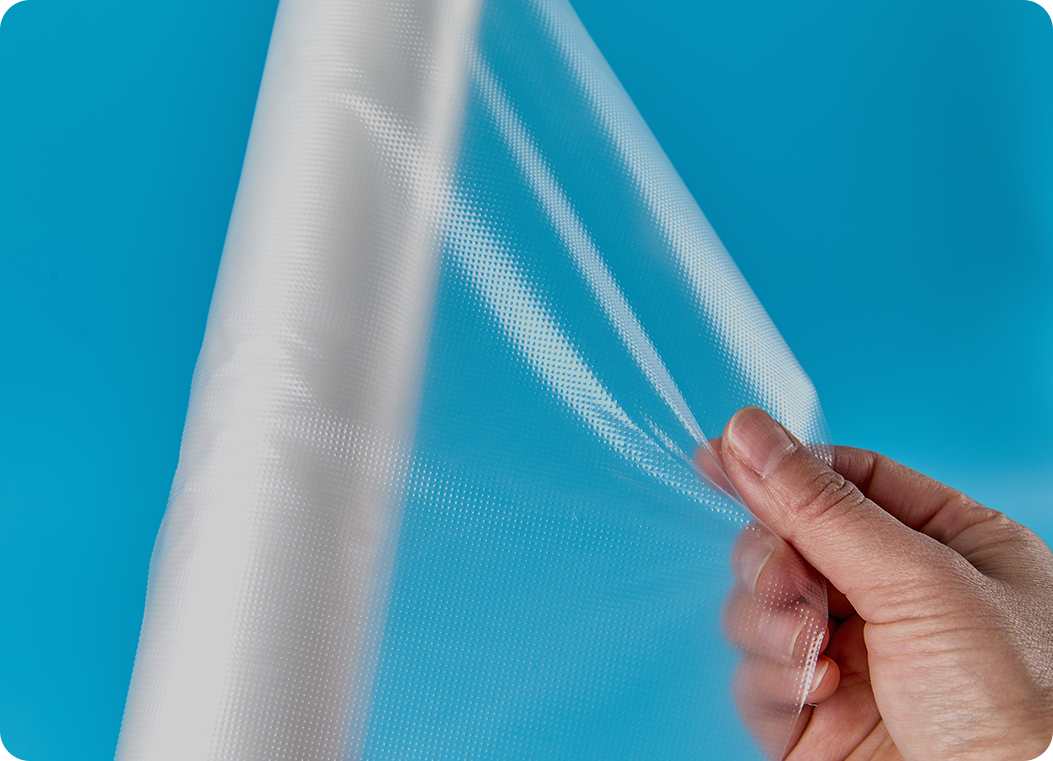
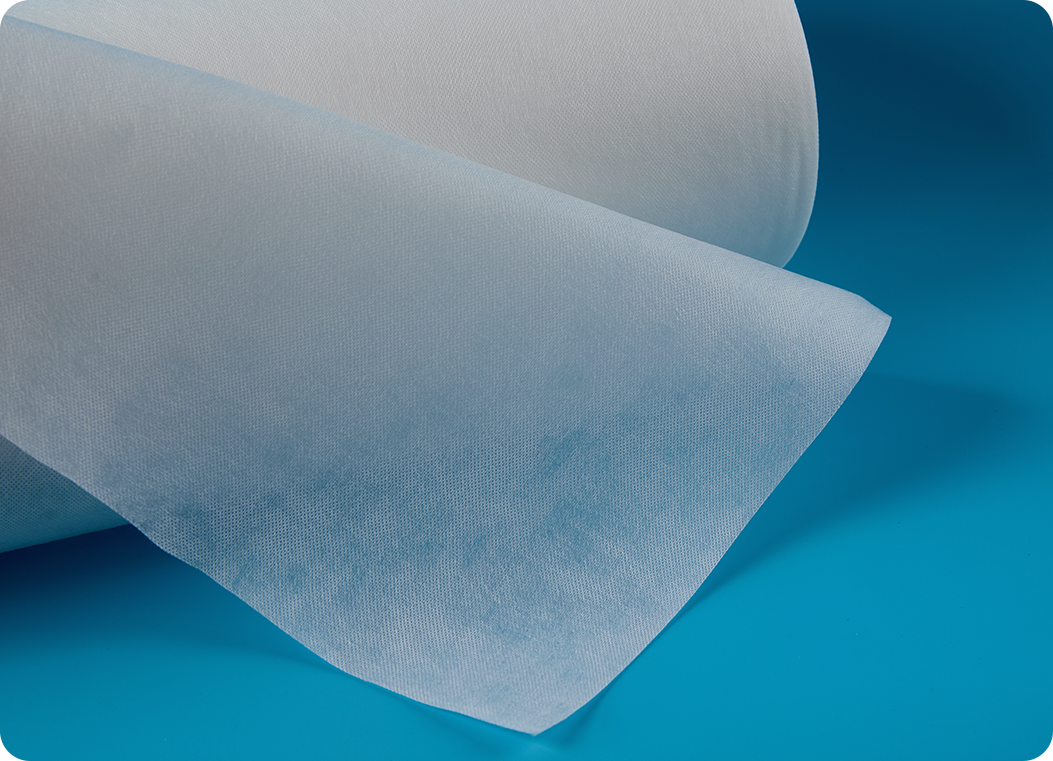


 English
English 中文简体
中文简体 Türk
Türk
